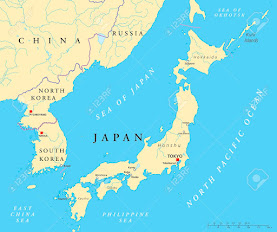South Korea's cultural evolution since the war has been a captivating journey that reflects its resilience and creativity. This article provides an overview of South Korea's cultural development since the war, offering insights into its diverse and vibrant cultural identity.
Traditional Roots
In the
aftermath of the war, South Korea made deliberate efforts to preserve its
traditional culture. Traditional Korean arts, such as dance, music, and hanbok
(traditional clothing), continued to be celebrated and passed down through
generations.
Cultural Festivals
South Korea
hosts a wide range of cultural festivals that showcase its rich heritage. These
festivals celebrate traditional arts, cuisine, and customs, providing a
platform for both locals and visitors to immerse themselves in Korean culture.
Modern Arts and Design
South
Korea's contemporary art scene has flourished, with artists gaining recognition
on the global stage. Modern art galleries and design studios have sprung up,
contributing to the country's creative landscape.
Hallyu Wave
In recent decades, South Korea has experienced the Hallyu (Korean Wave) phenomenon, which has catapulted its popular culture onto the global stage. K-pop music, Korean dramas, and films have gained international acclaim, creating a global fanbase.
Culinary Diversity
South
Korean cuisine, including dishes like kimchi, bulgogi, and bibimbap, has gained
popularity worldwide. Korean restaurants and street food stalls can be found in
cities across the globe, allowing people to savor the flavors of Korea.
Cultural Preservation
Efforts to
preserve cultural heritage are evident through the restoration of historic
sites, the maintenance of traditional hanok (Korean houses), and the promotion
of traditional crafts like pottery and calligraphy.
South
Korea's post-war cultural transformation is a testament to its ability to blend
tradition with modernity. The country's vibrant cultural identity, enriched by
its traditional roots and contemporary creativity, continues to captivate
audiences around the world. This journey through time showcases South Korea's
unique and dynamic cultural landscape.




0 Comentarios